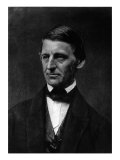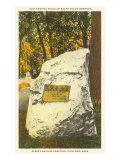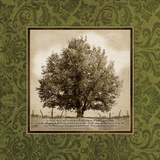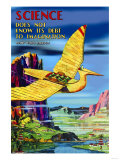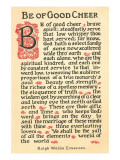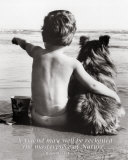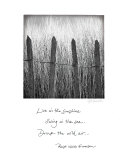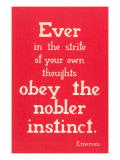|
|
|||||||||
|
|||||||||
|
|
|||||||||
|
|||||||||
|
|
|||||||||
 |
|||||||||
|
|
|||||||||
Ralph Waldo Emerson Posters, Books, Video, Links for Learning
|
|||||||||||||||||||||||||||||||||||||||||||||||||||||||||||||||||||||||||
|
literature > authors list > RALPH WALDO EMERSON < individuals < social studies |
|||||||||||||||||||||||||||||||||||||||||||||||||||||||||||||||||||||||||
|
Ralph Waldo Emerson Philosopher Ralph Waldo Emerson was hailed as an essayist, lecturer, and poet who expressed his views in lyrical prose. His vigorous and passionate essays inspired a cultural movement that came to be known as Transcendentalism. Emerson's combination of mysticism and intellectual rigor exerted a profound influence on other American authors, including Herman Melville, Walt Whitman, Emily Dickinson, Nathaniel Hawthorne, and Henry David Thoreau.
|
|||||||||||||||||||||||||||||||||||||||||||||||||||||||||||||||||||||||||
|
Ralph Waldo Emerson Quotes ~
• “Finish each day and be done with it. You have done what you could. Some blunders and absurdities no doubt crept in; forget them as soon as you can. Tomorrow is a new day; begin it well and serenely and with too high a spirit to be cumbered with your old nonsense.” • RALPH WALDO EMERSON BOOKS, VIDEO The Essential Writings of Ralph Waldo Emerson - The definitive collection of Emerson's major speeches, essays, and poetry, The Essential Writings of Ralph Waldo Emerson chronicles the life's work of a true “American Scholar.” Selected Writings of Ralph Waldo Emerson- “Standing on the bare ground--my head bathed by the blithe air and uplifted into infinite space--all mean egotism vanishes,” Emerson wrote in Nature, his statement of the principles of transcendentalism. “I become a transparent eyeball.” Nature, published in 1836 when Emerson was thirty-three, is collected here with his book of observations on the English people; a famous sermon against administering communion in church; a sketch of his step-grandfather; the eulogy he delivered at the funeral of his Concord friend and neighbor Henry David Thoreau; twenty-three poems; and addresses, lectures, and essays on such subjects as slavery, self-reliance, and organized Christianity's obsession with the person of Jesus. Emerson called transcendentalism another word for idealism--“a hypothesis to account for nature by other principles than those of carpentry and chemistry.” Considered intensely radical at a time when materialism and a rigid form of Christianity were ascendant, he urged Americans to “enjoy an original relation to the universe.” These selections span Emerson's career as author and traveling lecturer, and chart his evolving thought: the concepts of the “oversoul”, individualism without egotism, and antimaterialism; a belief in intuition, independence, and “the splendid labyrinth of one's own perceptions.” (inside flap) Nietzsche & Emerson: An Elective Affinity - Author George J. Stack traces the sources of ideas and theories that have long been considered the exclusive province of Friedrich Nietzsche to the surprisingly radical writings of the American essayist and poet, Ralph Waldo Emerson. Ralph Waldo Emerson by Oliver Wendell Holmes.- In this biography, written by American physician, poet, and humorist Oliver Wendell Holmes, Emerson’s life is traced from his family genealogy through his childhood, his years in school, his ordination and early writings, to his years as a preeminent thinker, lecturer, poet, and writer. The book, originally published in 1885, even offers a look at the “future of his reputation” from the late 19th century point of view. Mary Moody Emerson and the Origins of Transcendentalism: A Family History- Mary Moody Emerson has long been a New England legend, the "eccentric Calvinist aunt" of Ralph Waldo Emerson, wearing a death-shroud as her daily garment. This exciting new study, based on the first reading of all her known letters and diaries, reveals a complex human voice and powerful forerunner of American Transcendentalism. From the years of her famous nephew's infancy, in both private and published writings, she celebrated independence, solitude in nature, and inward communion with God. Mary Moody Emerson inherited both resources and constraints from her family, a lineage of Massachusetts ministers who had earlier practiced spiritual awakening and political resistance against England. Cole discovers a previously unexamined Emerson tradition of fervent piety in the ancestors' own writing and Mary's preservation of their memory. She also examines the position of a woman in this patriarchal family. Barred from the pulpit and university by her sex, she also refused marriage to become a reader, writer, and religious seeker. Cole's biography explores this reading and writing as both a woman's vocation and a gift to Ralph Waldo Emerson. Helping to raise her nephews after their father's death, Mary Moody Emerson urged Waldo the college student to seek solitude in nature and become a divine poet. Cole's pioneering study, tracing crucial lines of influence from Mary Emerson's heretofore unknown texts to her nephew's major works, establishes a fresh and vital source for a central American literary tradition. |
|||||||||||||||||||||||||||||||||||||||||||||||||||||||||||||||||||||||||
|
|
|
|
|
NPW home | Global PathMarker Collection | APWTW Blog | faqs-about | contact | search | privacy |
|
NetPosterWorks.com ©2007-2015 The Creative Process, LLC All Rights Reserved. |
last updated









